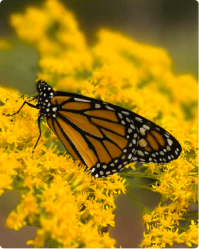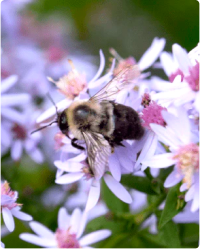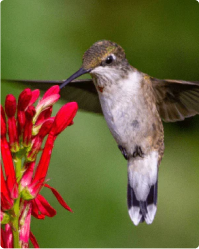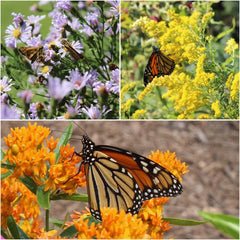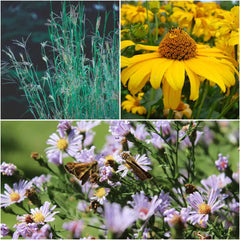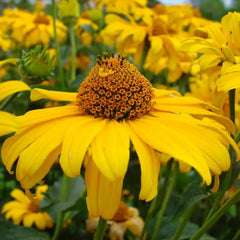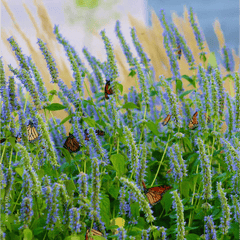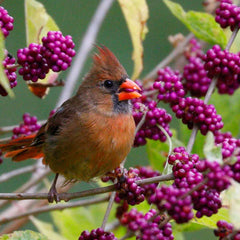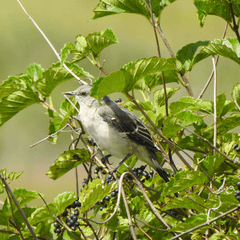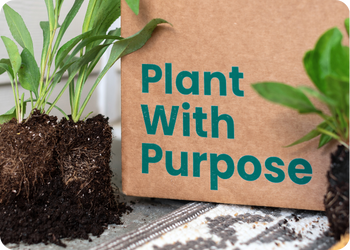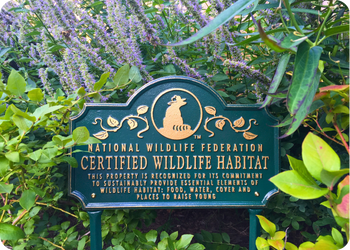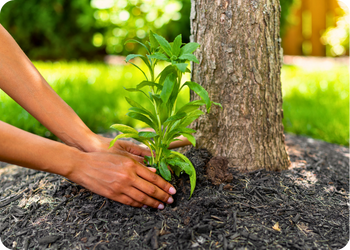- Shop All
- Plant Finder Quiz
- Collections
-
Regions
- Connecticut
- Maine
- Massachusetts
- New Hampshire
- New Jersey
- New York
- Pennsylvania
- Rhode Island
- Vermont
Northeast
- Alabama
- Arkansas
- Delaware
- District of Columbia
- Florida
- Georgia
- Kentucky
- Louisiana
- Maryland
- Mississippi
- North Carolina
- South Carolina
- Tennessee
- Virginia
- West Virginia
Southeast
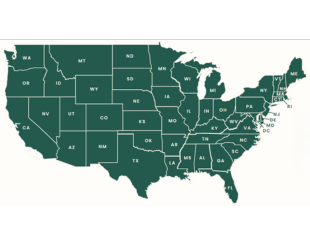
View Map
- Habitats
- Wildlife
- Our Mission
- On Sale
- New
Why Plant Native?
Plant With Purpose: Grow Native, Help Wildlife, Heal the Planet
Support Local Wildlife
Scientific studies confirm that gardens bursting with native plants are a haven for wildlife. Native flora provides a rich buffet of floral diversity. Planting our curated native plant collections ensures a three-season bloom, providing a reliable food supply for pollinators and wildlife that lasts through the spring, summer, and fall.
By choosing to plant native, you’re supporting::
- Birds
- Pollinators like bees and butterflies
- Other beneficial insects
- Amphibians
- Small mammals
- Reptiles
Some native plant species are recognized as “keystone” plants which means that the species plays an outsized role in its ecosystem. Just like the keystone holds up an arch, keystone plants hold up the web of life. Keystone plants support 90% of butterflies and moths, and up to 60% of native bees in a specific ecoregion.

Keystone Native Plants
Keystone plant species include goldenrods (Solidago spp.), asters (Symphyotrichum spp.), and sunflowers (Helianthus spp). View our selection of individual plants and curated collections featuring keystone plants.
Monarch Munchables
- Regular Price
- from $98.00
- Sale Price
- from $98.00
- Regular Price
-
- Unit Price
- /per
Hummingbird Heroes
- Regular Price
- from $98.00
- Sale Price
- from $98.00
- Regular Price
-
- Unit Price
- /per
Blue Wood Aster Plant Sets
- Regular Price
- from $38.00
- Sale Price
- from $38.00
- Regular Price
-
- Unit Price
- /per

Restore Wildlife Habitats
Today, human development encroaches on critical wildlife habitats. This is especially true in metropolitan areas, where vast swathes of land have been transformed into concrete jungles. Metropolitan populations combined, equal an area half the size of the 48 contiguous United States, which is also where two thirds of wildlife species reside.
Planting wildlife gardens is a powerful way to reverse the decline of wildlife populations, doubling wildlife presence within one season.
Native plants provide food, protective cover, and safe havens for wildlife to raise their young. By simply adding a water source, you can transform your wildlife garden into a Certified Wildlife Habitat®.
Help the Planet
The positive impact of native plants goes beyond your backyard. Replacing even a small portion of your lawn with native wildflowers, shrubs, and grasses helps to reduce the urban heat island effect, a phenomenon where cities are significantly warmer than surrounding areas.
Native plants require less water and no harsh chemicals to thrive, making them a sustainable and eco-friendly choice. The deep root structures of many native plants create channels in the soil which aid in stormwater runoff, supporting healthy watersheds.
Since they are naturally adapted to your local environment, native plants are low-maintenance to grow and they're more likely to spread naturally over time, adding value to your garden year after year. Not to mention, wildflower gardens are also exceptionally beautiful and buzzing with life.
Ready to join the native plant movement? Browse our extensive selection of native plants and craft a beautiful, wildlife garden for your yard!

Related Resources
A Comprehensive Guide to Native Plants
Learn how native plants support birds, butterflies, bees and other pollinators and how to get started with wildlife gardening.
The Science of Our Native Plants
What makes native plants special and how do we determine which native plants to sell? Learn all about the behind-the-scenes science at Garden for Wildlife.
Mapping Biodiversity with Homegrown National Park
Homegrown National Park™ (HNP) embodies the transformative potential of community-driven conservation.
Find out what's blooming.
Sign up for updates on new releases, sales, plant care tips, and more.
